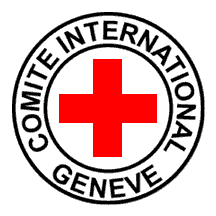International Committee of the Red Cross

The ICRC was founded as a result of the work of Henry Dunant, a Swiss, at the battle of Solferino (1859), where thousands of wounded French, Austrian and Italian soldiers were left without adequate medical care. Dunant's book – A Memory of Solferino (1862) – led to the adoption of the first Geneva Convention (1864), laying out rules to protect wounded soldiers and medics, and to the creation of relief societies in each country.
These bodies became known as Red Cross Societies, referring to the universal emblem adopted to identify and protect medical units. (The red crescent emblem was introduced in the 1880s.)
Since its foundation, the ICRC has played a humanitarian role in most of the conflicts that have taken place around the world. It has continuously worked to persuade States to expand the legal protection of war victims, to limit suffering.
The ICRC, the national societies and their International Federation form the International Red Cross and Red Crescent Movement. In situations of armed conflict the ICRC coordinates the response by its Movement partners.
The ICRC has a permanent international mandate for its work. This derives from the 1949 Geneva Conventions – agreed to by every State in the world – and from the Statutes of the Movement.
However, the ICRC remains a private organisation governed by Swiss law and strictly independent in its governance and operational decisions. The Committee itself consists of up to 25 co-opted members, all Swiss. The ICRC's work respects the Movement's fundamental principles, notably those of neutrality, impartiality and independence.
The ICRC's annual budget in recent years has been in the region of one billion Swiss francs (USD, EUR…). Its principal donors are governments, regional organisations, national Red Cross and Red Crescent societies, municipal authorities, the private sector and members of the public. National societies also make an important contribution in terms of specialized personnel. ICRC accounts are explained every year in the annual report.
More than 1,400 specialized staff and generalists are currently on field missions for the ICRC across the globe. They work with some 11,000 local employees, supported and coordinated by around 800 staff at its Geneva headquarters. Expatriate staff members can be from countries anywhere in world; the ICRC is an equal opportunities employer.
The ICRC administers various special funds and awards for national societies, to help their work, or to Red Cross workers, either in recognition of their service or to provide practical assistance in case of hardship.
.
.
.